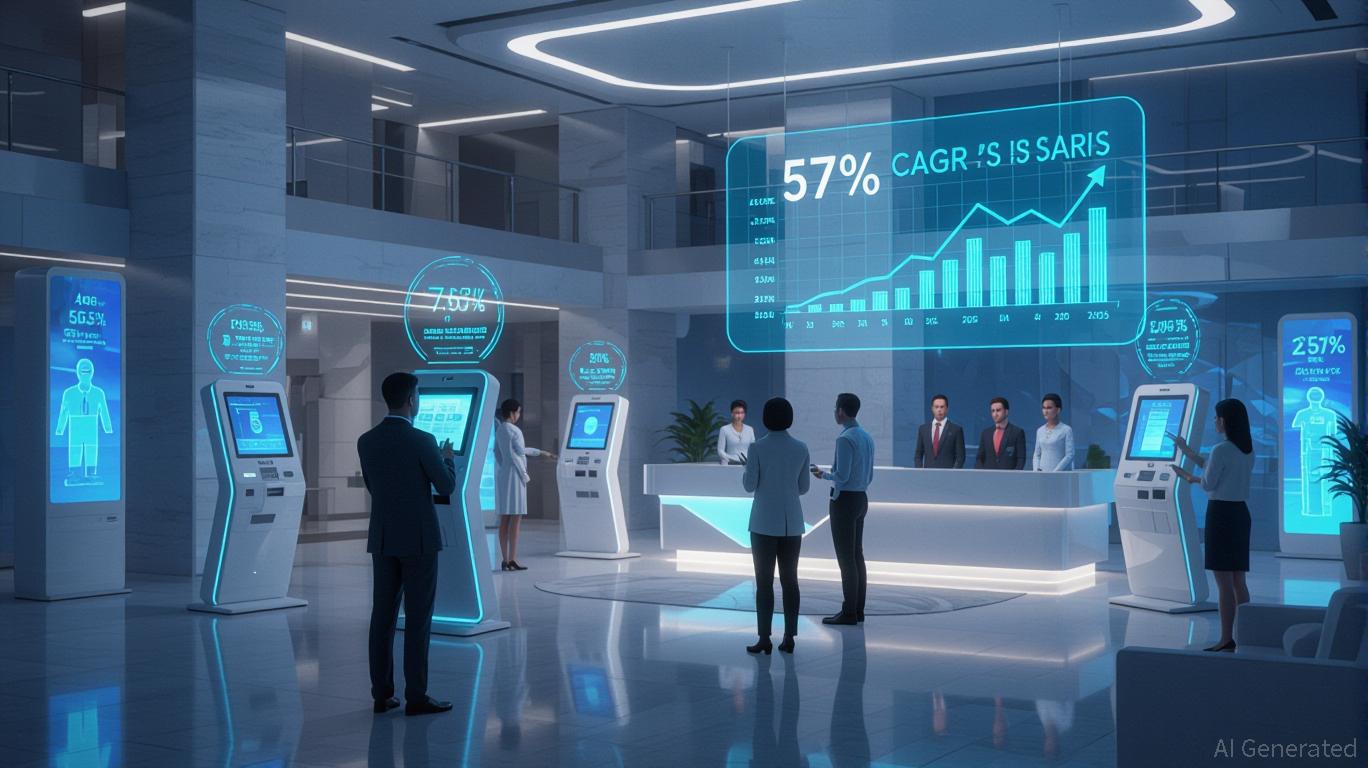
The hospitality industry is undergoing a seismic shift, driven by artificial intelligence (AI) technologies that are redefining guest experiences, operational efficiency, and long-term profitability. For investors, the strategic adoption of AI by industry leaders like Marriott International and Airbnb presents a compelling case for high-growth opportunities. These companies are not merely experimenting with AI—they are embedding it into the core of their business models, creating defensible competitive advantages in an increasingly crowded market.
The AI Flywheel: Personalization, Efficiency, and Loyalty
Marriott’s AI-driven personalization strategy has become a blueprint for customer-centric hospitality. By integrating machine learning and predictive analytics into its Bonvoy loyalty program, the company has unlocked a 10% increase in guest retention and a 12% uplift in ancillary revenue. This success stems from a data moat of 200 million loyalty members, whose preferences and behaviors are analyzed to deliver hyper-personalized services, from room upgrades to tailored dining recommendations. The result? A self-reinforcing cycle: enhanced guest satisfaction drives deeper loyalty, which in turn generates more data to refine AI models further.
Similarly, Airbnb’s AI-powered demand forecasting and inventory optimization have boosted host occupancy rates by 15% and reduced cancellations by streamlining supply-demand alignment. By analyzing booking patterns, regional events, and external factors like holidays, Airbnb’s AI ensures hosts are better prepared to meet guest expectations. This not only improves guest satisfaction but also strengthens the platform’s network effect, as hosts and guests become more reliant on its predictive capabilities.
Financial Metrics and Market Projections: A Data-Driven Investment Case
The AI in hospitality market is expanding at an unprecedented pace. As of 2024, the market was valued at $0.15 billion, with projections to reach $0.24 billion by 2025 (a 57% CAGR). By 2029, the market is expected to surge to $1.46 billion, driven by generative AI, IoT integration, and blockchain for secure transactions. These trends underscore a sector where early adopters like Marriott and Airbnb are poised to capture significant value.
Marriott’s 2024–2025 technology investments—ranging from $1 billion to $1.2 billion—highlight its commitment to building a cloud-based infrastructure that supports AI scalability. This includes replacing legacy systems with platforms like Oracle’s OPERA Cloud PMS and deploying AI tools such as the Automated Complimentary Upgrade (ACU) system. Early results show a 15% increase in direct bookings from loyalty members, driven by targeted offers powered by AI analytics. Meanwhile, Airbnb’s focus on dynamic pricing and guest matching, though less publicly detailed, aligns with industry trends that prioritize AI-driven efficiency.
Strategic AI Adoption: A Key Differentiator in a Competitive Market
The true value of AI in hospitality lies in its ability to transform operational inefficiencies into strategic advantages. Marriott’s ACU system, for instance, automates the complex task of room assignments, reducing labor hours and improving guest satisfaction for elite members. This not only cuts costs but also enhances the brand’s reputation for reliability and personalization. Similarly, Airbnb’s AI-driven inventory optimization ensures hosts maximize occupancy during peak seasons, creating a win-win for both parties.
Beyond guest-facing applications, AI is also driving sustainability and cost savings. Marriott’s AI-powered Scope 3 emissions reporting system has reduced annual work hours by 250 and cut emissions by 5–10% through more accurate data mapping. Such initiatives align with ESG (Environmental, Social, and Governance) trends, which are increasingly critical for investor confidence.
Investment Implications: Targeting AI-Driven Innovators
For investors, the key takeaway is clear: companies that integrate AI into their core operations are outpacing peers in both profitability and market share. Marriott’s projected $1.2 billion technology investment and Airbnb’s AI-driven demand forecasting exemplify how strategic adoption can create long-term value.
However, risks remain. Data security breaches could undermine trust in loyalty programs, while the complexity of AI implementation in franchised models (as seen with Marriott) requires careful execution. Investors should monitor key metrics such as ROI from AI tools, guest retention rates, and operational cost savings to gauge success.
Conclusion: A High-Growth Opportunity
The AI revolution in hospitality is not a passing trend—it’s a fundamental shift in how companies compete. By prioritizing AI-driven personalization, operational efficiency, and sustainability, leaders like Marriott and Airbnb are setting new benchmarks for the industry. For investors, this represents a golden opportunity to capitalize on a sector poised for exponential growth. As the AI in hospitality market accelerates toward $1.46 billion by 2029, early adopters with robust AI strategies will likely dominate the landscape, offering both financial returns and a stake in the future of travel.
The time to act is now. Investors who recognize the strategic importance of AI in hospitality will find themselves at the forefront of a transformative era—one where loyalty, profitability, and innovation are inextricably linked.

